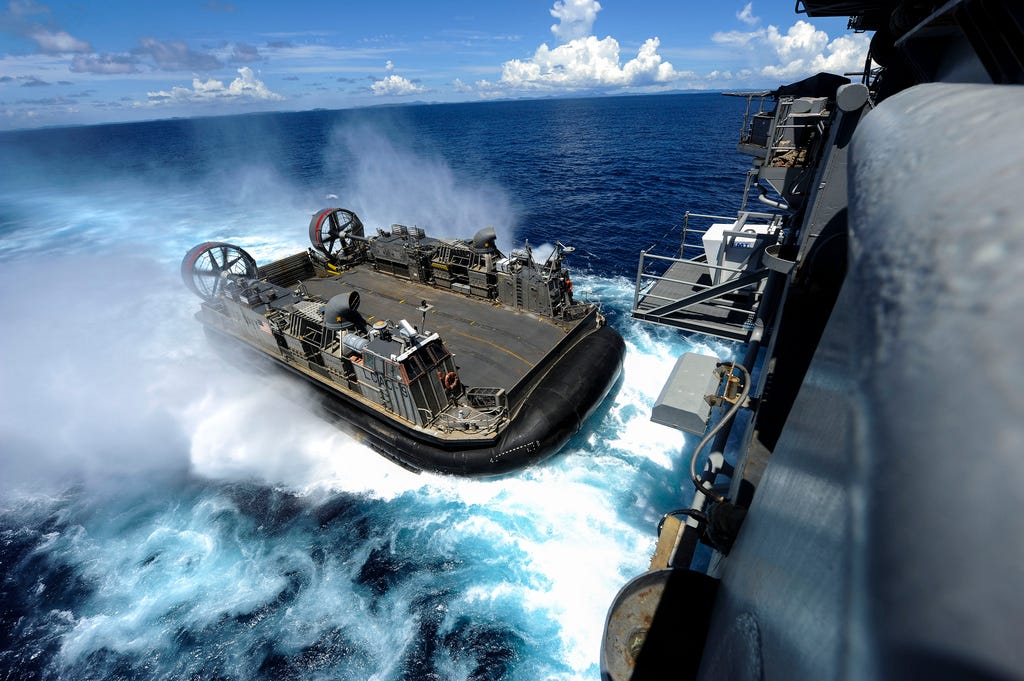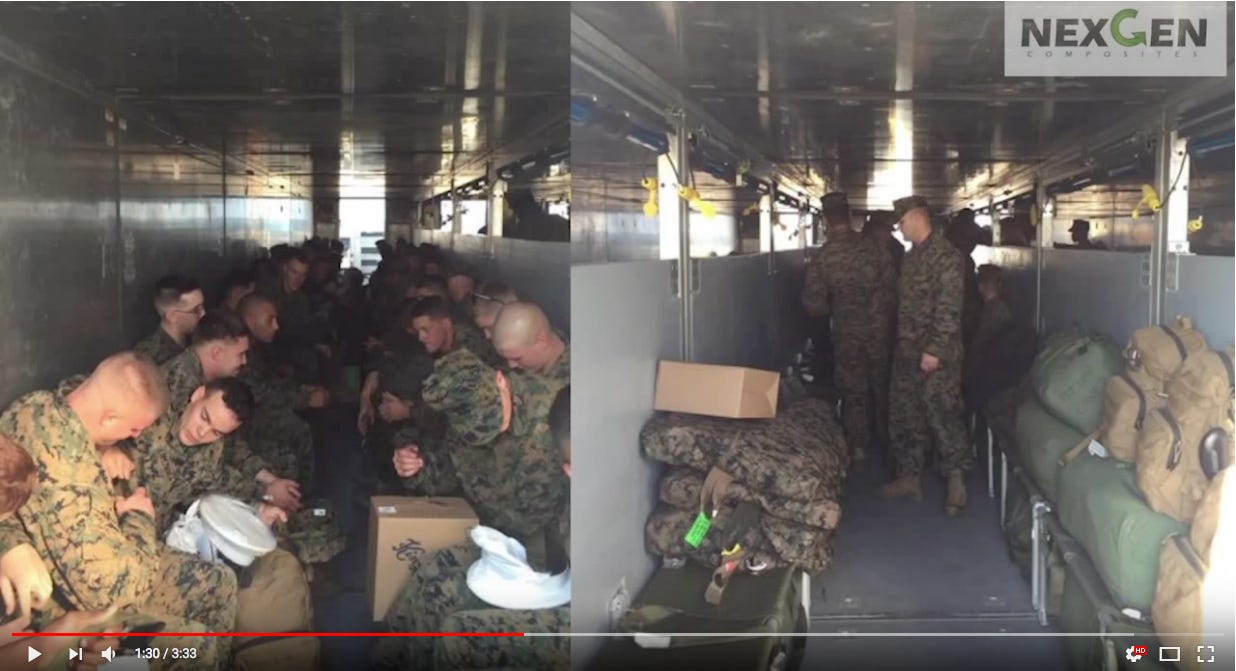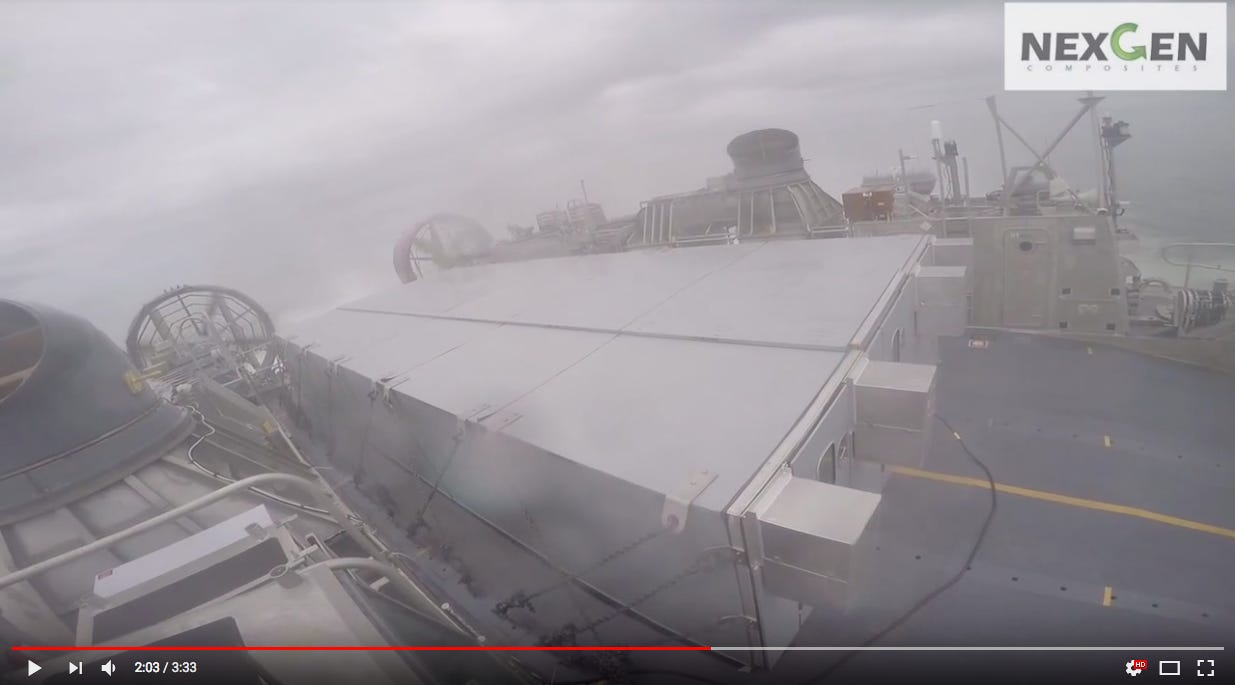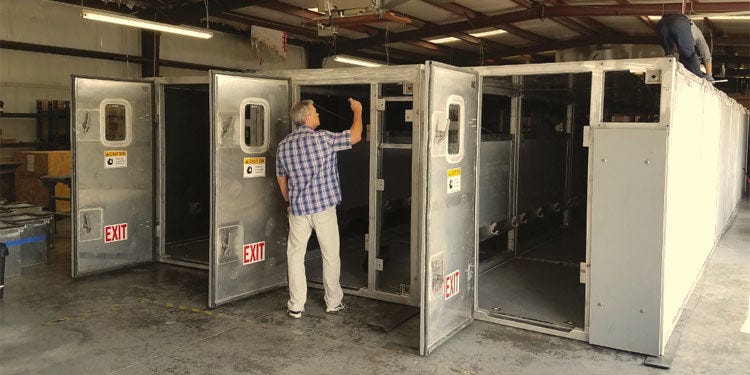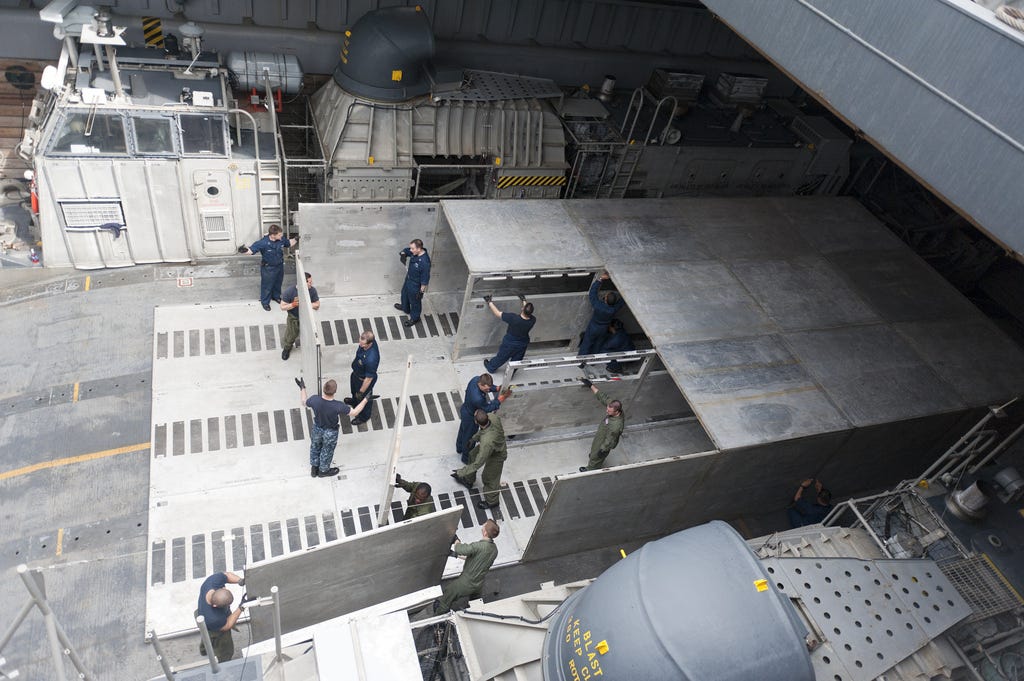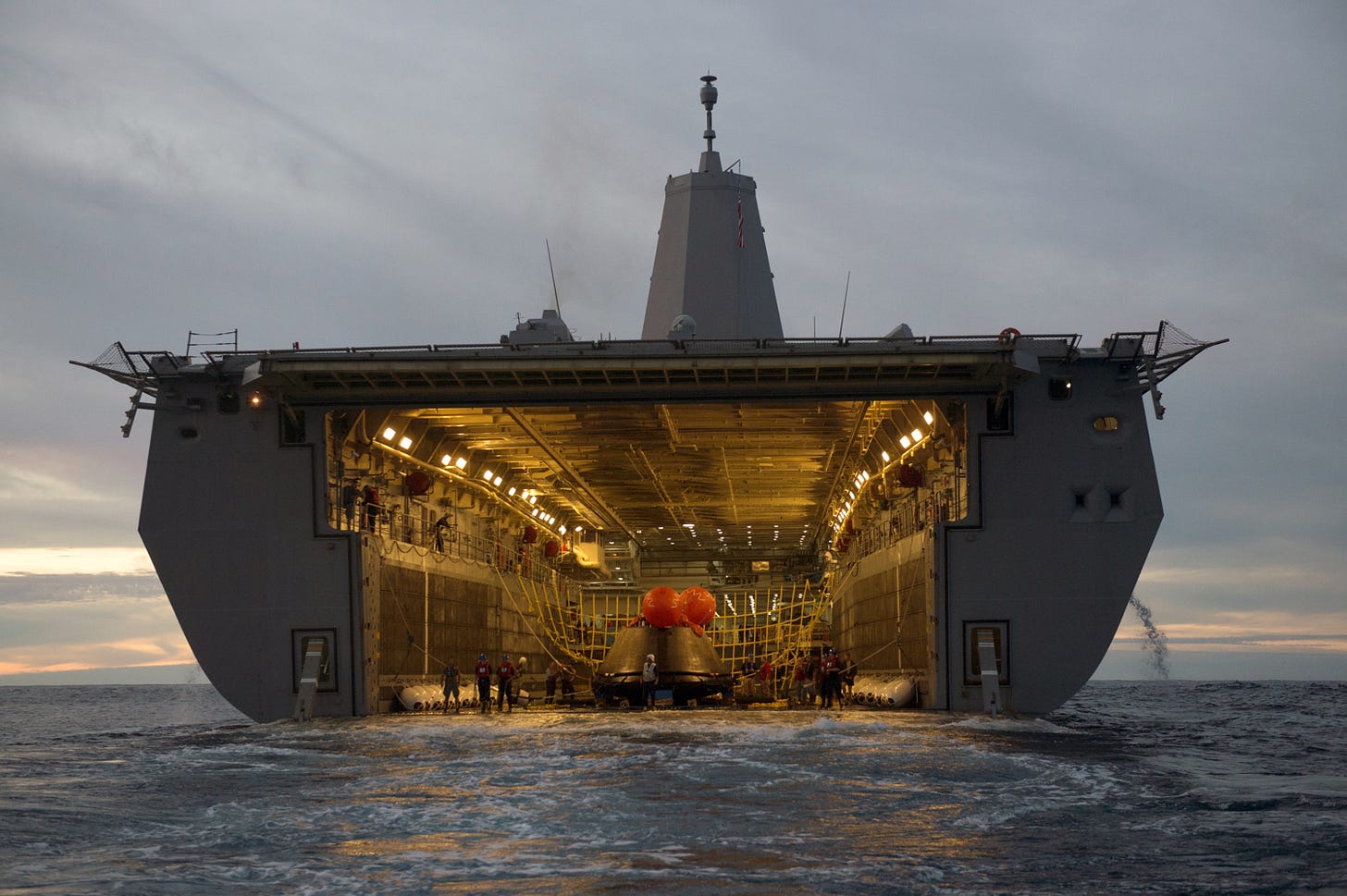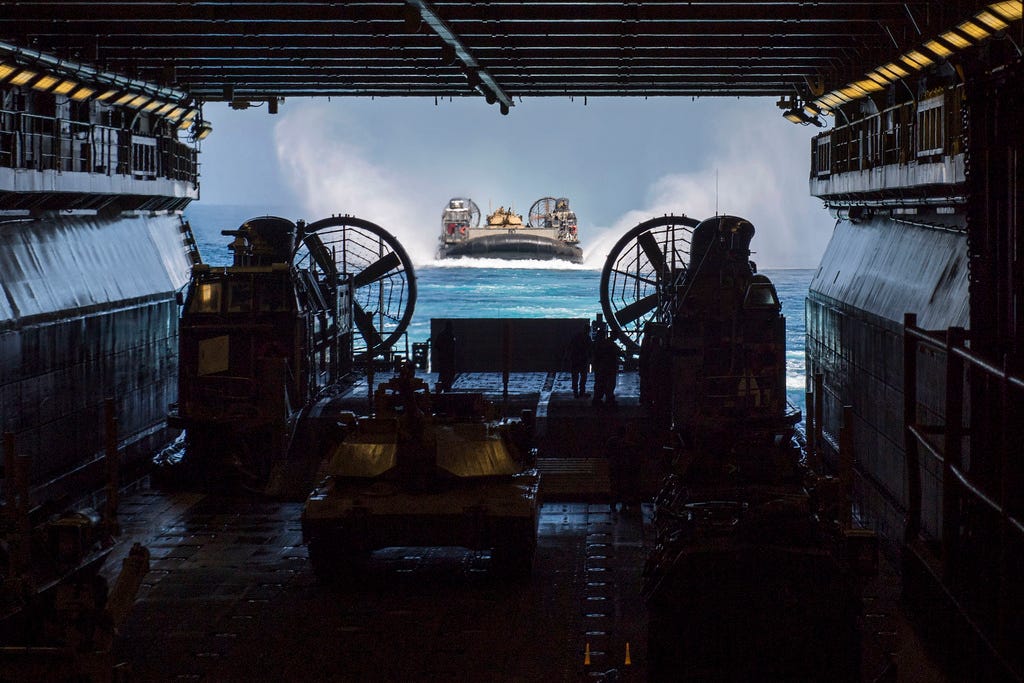Yesterday, 9:23 PM.
Everything on the surface of Viridian Island was blasted flat and incinerated by a 50-kiloton airburst—delivered by a Tomahawk cruise missile, courtesy of the United States Navy.
It was the beginning of the end of the world.
The Chairman of the Joint Chiefs of Staff—an Army general and thirty-five-year veteran of three wars—had been so shaken by the footage from Viridian that he bypassed protocol and ordered the strike himself.
Ordinarily, this kind of action required the President’s direct authorization. But there was no time.
What he saw wasn’t a threat to national security.
It was a threat to the species.
Whatever was loose on that island could end humanity faster than all the weapons in the U.S. arsenal combined.
He would deal with the fallout—political, moral, and literal—later.
For now, he bowed his head and whispered a prayer for the hundreds of good men and women he had just condemned.
Twenty minutes earlier...
Marie Wong barely made it out of the lab before the reinforced glass doors slammed shut behind her.
Klaxons still howled in her ears. The brightness of the hallway fluorescents stabbed at her vision.
The thing had grabbed her arm. She’d torn free before it got a solid grip—but the others hadn’t been so lucky.
She had to get out.
She had to warn someone.
My God, she thought. What if it got out?
Could it get out?
She sprinted for the elevator. When it finally arrived, she slapped the button for the ground floor.
The ride took five minutes.
It felt like fifty.
Adrenaline surged through her, clouding her thoughts. She shivered uncontrollably, arms wrapped tight across her chest.
The elevator doors slid open.
A wall of military police stood waiting, rifles raised.
“Step out of the elevator!” one barked. “Slowly!”
Marie obeyed, hands up.
“Check her.”
One of the MPs broke from the line, weapon lowered. He approached her cautiously, scanning her up and down.
To her surprise, there were no marks on her arm. She could have sworn it had drawn blood—hadn’t it?
The MP pulled a scanner from a pouch on his thigh. She tried to glimpse the screen, but the data meant nothing to her—just pulsing colors and glyphs.
“She’s clean,” the MP said.
“Alright,” the lead officer replied. “Get her outside. Wait for the Marines.”
Marie climbed the steps of a matte-gray school bus—normally used to ferry personnel around the island on a timed schedule.
Outside, muffled shouting and thudding boots echoed between houses as nearby neighborhoods received unexpected Marine Corps visits.
She passed a heavily armed Marine posted at the front, avoided the gazes of the others onboard, and made her way to the rear.
When she could go no farther, she slid into a seat by herself.
She felt feverish and cold—like the flu had hit her all at once. Sweat broke across her skin, and she began to shiver.
The spot on her arm where the thing had grabbed her started to itch. She scratched at it absent-mindedly.
The sensation was off—like pressing on your face while still numb from Novocaine.
A few minutes later, the bus door closed and they began to move. It stopped again in a residential sector, where Marines escorted more civilians from their homes—ready for war, judging by their posture and gear.
A man and his wife boarded and took the seats across from Marie.
He looked composed.
She looked like she was falling apart.
“What’s happening, Gary?” the woman asked, voice trembling.
“Something’s not right,” he said. He pulled her close and rested his forehead against hers.
“They said there’s been some kind of containment breach.”
“Containment breach?” someone echoed.
Marie recognized the voice—it was Tom Flannery, a neighbor and colleague from a sister department.
“That doesn’t make sense,” Flannery said. “We do high-energy physics here. If there was a real breach, we’d be getting the debriefing from Saint Peter.”
The bus filled rapidly. The doors sealed. The interior lights went dark.
They moved again—stop-and-start, then fast. Marie had no idea where they were headed, but she guessed helicopters. That’s how she’d arrived on Viridian last year.
As dusk gave way to darkness, tension thickened in the bus. Armed Marines stood like statues at the front. The whispering started—fragmented, desperate.
“I’m Diane,” the woman across from her said, attempting a strained smile. “This is my husband, Gary.”
“Marie,” she croaked.
“Oh, sweetie...” Diane leaned forward, concern etched into her features. “You don’t look good.”
“I’m okay,” Marie whispered. “Just a little scared.”
“There’s nothing to be scared of,” someone whispered.
Marie stiffened. “What—did you...?”
Diane and Gary looked at her, confused.
“Never mind,” she muttered.
“I think it might be that new project down on Twenty-One,” someone whispered from the dark.
“Yeah,” said another voice. “Hey, Marie—you work down there. What’s going on?”
All eyes shifted toward her. Moonlight glinted on her sweat-slick skin. Her face was frozen in a silent panic.
“I... I’m just an admin assistant,” she said. “Barely got out. Something... came through. I… everyone...”
Her voice cracked. She covered her face and began to cry.
“Came through?” Gary asked. “Came through what?”
Marie looked up, wild-eyed. “I don’t know. A circle of light. They kept turning it on and off. They called it a quantum... quantum something.”
“Quantum?” said Gary. “Quantum what—computer?”
“Dimension,” she said. “It had ‘dimension’ in the name.”
“Wait. Whoa, whoa, whoa,” said Flannery. “You guys have a dimensional gate or something down there?!”
“I don’t know!” she snapped—then softened, trying to breathe. “I don’t know. I saw something. It came out. They turned it on, and something...”
Her voice trailed off. Her eyes widened, caught in the memory.
“This is not good,” Gary muttered, clearly wanting to say more—but the bus jerked to a sudden stop.
They had reached the shoreline.
Beyond a sparse line of palm trees, three Navy hovercraft loomed on the sand—hulking, melted-looking shapes with twin circular fans mounted at their sterns.
“Cool!” Flannery said, eyes wide. “I’ve always wanted to ride in a hovercraft.”
“Elsee Aye see, sir,” said the Marine at the front of the bus.
At least that’s what Marie thought she heard.
“Right, right,” Flannery nodded. “Landing Craft Air Cushion. L.C.A.C.”
The Marine said nothing, but nodded once.
The U.S. Navy’s assault hovercraft loomed like dark silhouettes against the shimmering Pacific.
Circles of artificial light danced across the sand—cast by handheld flashlights wielded by flight-suited men in headsets, each tethered by long comm cords to mobile consoles nearby.
Passengers were ordered off the bus and directed toward the waiting LCACs.
Gary took Diane’s hand and led her across the narrow beach at a stumbling jog, heading for the nearest ramp. Marie followed close behind.
On the deck of the lead hovercraft sat a large, gray, metal container—bolted down with thick cargo chains. Three open doors lined its front, each manned by a Marine.
The group was divided into three columns and ushered in—most went willingly. Those who hesitated received quiet encouragement from the armed escorts.
Inside, each corridor resembled the hold of a military transport plane: long rows of nylon webbing for seats, bolted to both walls beneath dull fluorescent lights. The overhead fixtures were cylindrical, explosion-proof, and bathed everything in a sickly greenish hue.
By chance or design, Marie, Diane, and Gary were placed in the same compartment. Gary and Diane took seats near the far end, beside what looked like the only window. Marie sat directly across from them.
There were small observation windows at either end of the container, but none along the walls—just a few rectangular cut-outs connecting the adjacent sections. If you stood, you could see through them into the other compartments.
A tinny but pleasant-sounding female voice came over the PA:
“Standby. We’re Oscar Mike. Going feet wet.”
A pause.
“I mean—we’re moving out. Trip should only take about ten minutes. For your safety, please remain seated until instructed otherwise.”
Outside, Marie heard the high whine of turbines spooling up.
The LCAC’s massive air skirt inflated, lifting the craft and kicking up roiling clouds of sand and mist.
Diane clutched Gary’s hand, her breaths rapid, eyes darting.
“Hey…” Gary said gently. “We’re going to be fine.”
“I’m just a little… claustrophobic,” she said, glancing around the tight interior.
“Look.” He pointed toward the door at the opposite end. “See? There’s plenty of room.”
Diane followed his gesture. She exhaled and nodded, visibly trying to calm herself.
Gary and Diane were holding it together—barely. Others weren’t. Across the aisle, couples whispered fiercely. A few passengers had to be physically settled by nearby Marines, who didn’t seem particularly happy about the assignment either.
The container sealed. The LCAC pushed off.
Through the rear-facing window, Marie watched Viridian Island shrink against the moonlit sky—just a jagged silhouette fading into the sea.
Two other hovercraft fell in line behind them, their blocky shapes joining the convoy.
Then—
“Everything is fine. Don’t worry.”
The whisper wasn’t in the cabin.
Marie stiffened.
Who— she began, but stopped herself.
Who are you?
“I have been called many things,” the voice said.
“But my true name is INFECTUS. You may call me... friend.”
You are not my friend, Marie thought. What... what are you?
“I am time—come across the eons. Come to help you. Let me help you.”
“I don’t need your help!” Marie snapped.
Diane looked over, startled. “Everything okay, sweetie?”
Marie hesitated, then nodded and looked away.
Ten minutes passed. The passengers tilted as the LCAC began to slow.
She wasn’t sure if they were docking or simply turning, but the shift in motion was unmistakable.
The PA crackled again.
“Okay everyone,” said the same woman. “We’re docking at the ship. Apologies for packing you in like sardines, but it was the fastest way to get you out of harm’s way. Once aboard, we’ll get you assigned bunks and something to eat.”
Her tone lightened—cheerful, almost absurd.
“On behalf of the United States Navy and Marine Corps, thank you for riding with us today. The crew of the U.S.S. Highland welcomes you aboard! The Highland is a San Antonio-class amphibious—”
A different voice cut in, sharp and annoyed: “Give me that.”
Several Marines chuckled. The tension didn’t break—it just shifted.
A bright light pierced the compartment, flooding everything in white.
For a moment, it felt like a spotlight had been turned on from outside—blinding, unnatural.
Marie shielded her eyes. The beam shifted downward, crawling across the floor like a searchlight on a slow arc.
She imagined a crane lifting the source, hoisting it toward the sky.
Then—
A sharp, metallic pop.
A single syllable of violence:
PING!—amplified to deafening levels.
The hovercraft jolted hard. Everything inside lurched down and sideways. People cried out as heads collided. The LCAC bounced twice, the engine’s pitch spiked, then settled again into its steady roar.
Marie stood unsteadily and turned to the window.
Outside, a massive fireball was blooming over Viridian Island—spherical, yellow-orange, impossibly wide.
Her brain couldn’t register it.
It didn’t look real.
She’d only ever seen mushroom clouds in old documentaries or science fiction films. This wasn’t cinematic—it was wrong. Too bright. Too complete.
It broke something inside her.
“Oh my god,” she whispered. “What the hell is happening?”
“What is it?” Diane asked.
“Let me see!” someone shouted from behind. A rough shove sent Marie tumbling back into her seat. She fell against the man beside her, both of them pressed against the wall as people swarmed the window.
“They… they nuked it!” someone yelled. “Oh my god! It’s the end of the world!”
“Everyone sit the fuck down!”
A Marine had drawn his sidearm, arms locked and aimed at the growing chaos.
Other Marines rose, weapons drawn, barking orders.
It didn’t take long. Fear—military fear—restored order. The crowd retreated to their seats, shaken and silent.
But Marie was already gone.
Her vision tunneled. Bright sparks danced at the edge of her sight.
A static roar swelled in her ears.
Then she slumped forward.
Her clothes were drenched with sweat. Her hands clenched into rigid claws, spasming in tight jerks—like a machine shorting out.
“Dear lord,” Diane gasped. She scrambled across the aisle, instincts overriding fear.
Gary turned just in time to see Marie’s head rise.
Her eyes had vanished.
There were only sockets—voids of inky black.
“You are not my friend,” she said.
But it wasn’t her voice.
Then her head split.
Not like bone breaking, but like a flower blooming wrong—petals of skin peeling outward in fractal layers.
Beneath the flesh: a spiraling mass of black coils, slick and geometric, folding in on themselves like living machinery.
Gary and Diane didn’t move.
They couldn’t.
There was no scream. No last words.
Only silence—and the shape of something ancient stepping into the world.
Roughly twenty Navy personnel in blue coveralls and hardhats marshaled the hovercraft into the Highland’s aft well deck.
From the gangways above the massive open ramp—still lowered into the Pacific—they had a clear view of the incoming LCACs.
Those carrying radios shouted excitedly about the view.
Some took pictures with their phones.
The mushroom cloud behind the hovercrafts cast an otherworldly glow over the scene.
Photos of LCACs docking in a well deck were nothing new.
But with a nuclear explosion in the background?
Nobody would believe it wasn’t Photoshopped.
The awe didn’t last long.
Gunshots—muffled but unmistakable—echoed from inside the personnel container.
Then came the screams.
Not human.
Moments later, the pilot and co-pilot burst from the flight deck, wading onto the half-submerged platform like men fleeing a sinking ship.
They didn’t shut down the engines.
They didn’t speak.
They just jumped off the ramp—and swam.
Above, radio chatter turned frantic.
Supervisors were called.
Warnings relayed.
Within minutes, the Highland sent an encrypted message to Command:
Compromised.
Then the door on the container opened—and black smoke billowed out, thick and choking.
A Marine stumbled through it—blood-soaked, coughing, her sidearm gripped in one shaking hand.
It wasn’t her blood.
She backed away from the opening, firing into the darkness.
When the shots failed to land—or matter—she holstered her weapon and pulled two grenades from her rig.
Pins popped.
She tossed both.
The twin explosions rocked the deck. The container’s door blew clear off its hinges.
A sound rose from within—layered and impossibly deep.
Not a roar.
Not a scream.
Something between a modem shriek and tectonic plate shear.
The container shook violently.
Something inside was striking the walls with colossal force, warping the metal.
The roof buckled outward—trembling like it might rip open at any second.
Then came the tendrils.
Hundreds of them—dark, barbed, twitching—shot from the doorway like living wire.
The Marine barely had time to turn her head.
The first wave struck her hand and forearm.
The second buried into her face and neck.
A third volley hit her legs and pulled her clean off the deck—dragging her back into the smoke.
Screaming, she drew her Ka-Bar and slashed at the threads.
They didn’t cut.
Instead, they began to merge—melting into her flesh, fusing with her.
She disappeared into the shadows of the container.
A moment later, the world turned white.
A nuclear warhead–tipped torpedo, launched from deep underwater, struck the Highland centerline with flawless precision.
The ship didn't break apart.
It ceased to exist.
Most of her was vaporized instantly.
Molten debris was flung a mile into the night sky, scattering across the South Pacific.
Some of it rained down on islands hundreds of miles away.
For the third time that day, sunlight bathed the ocean.
The captain of the U.S.S. Louisiana was furious—at the world, yes, but mostly at himself.
He’d commanded the Los Angeles–class submarine for over a decade. In all that time, he’d never been ordered to do anything like this.
Not that he’d questioned it.
He and his crew had carried out their orders with precision, without hesitation.
But now they were holding position in contaminated waters… and he had just killed every man aboard.
A thousand thoughts ran through his head at once.
Was this a suicide order?
Was he being sacrificed?
It didn’t matter.
He just hoped it accomplished whatever the brass thought needed doing.
His executive officer stepped up beside him and placed a hand on his shoulder.
“Not my proudest moment,” the captain said, eyes fixed on the deck. “We buried a lot of our own today.”
“Goes without saying,” the XO replied softly. “Command to dive? We should take evasive action.”
The captain shook his head. “No point, Jim. We were set at minimum safe distance from the island. I didn’t plan on leveling the Highland too.”
He looked his XO in the eye.
“This was supposed to be a rescue mission. The incident shock’s gonna catch us.”
The XO exhaled and looked away. “Great.”
He pulled out his wallet and slid a photo from inside—his wife and two kids. He stared at it for a long moment.
The captain picked up the PA mic.
After the Boatswain’s call sounded through the sub, he spoke into the silence:
“Godspeed, gentlemen.
It’s been an honor.”
A moment later, the shockwave hit.
Hydrostatic pressure folded the Louisiana like paper—twisting steel and flesh into silence.



